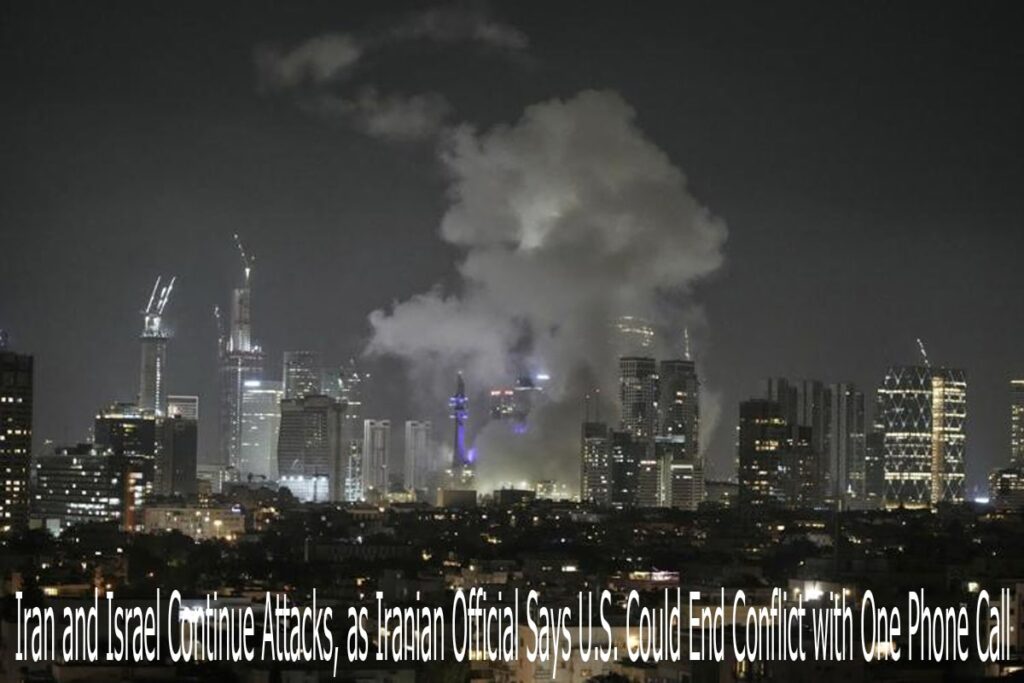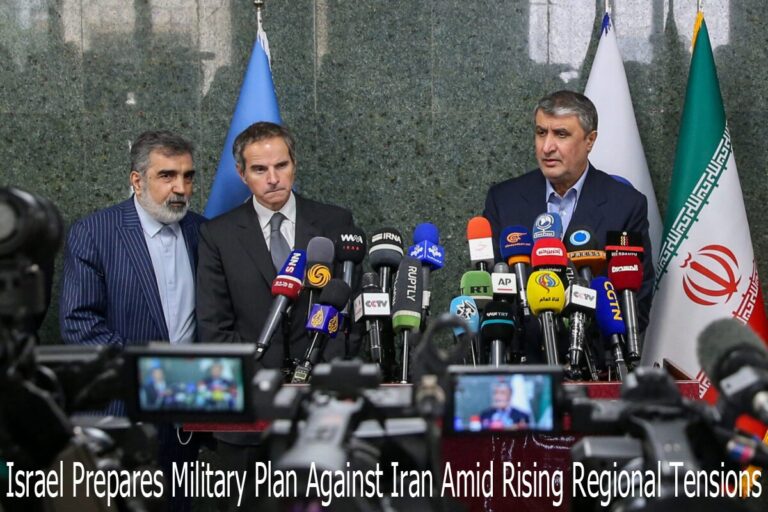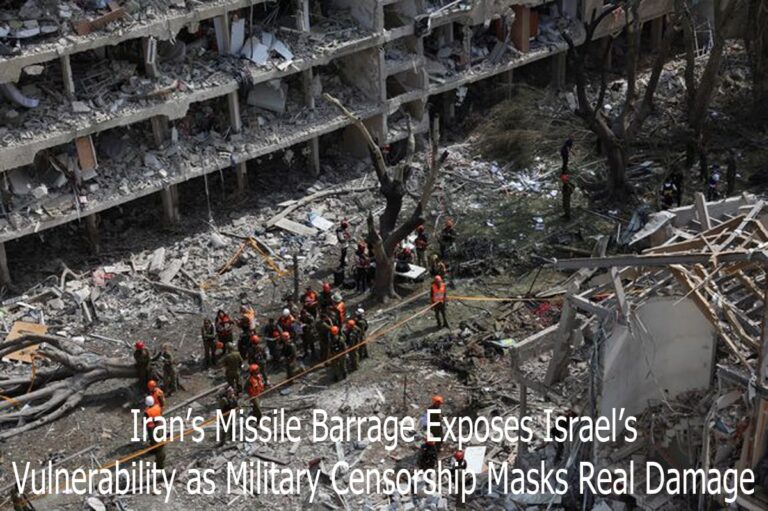
Iran and Israel Continue Attacks
Tensions in the Middle East have escalated dramatically as Iran and Israel engage in direct military confrontation. With both sides launching coordinated strikes that have led to hundreds of casualties and raised fears of a wider regional war. Amidst the violence, a senior Iranian official stated that the United States could end the conflict “with just one phone call,” calling on Washington to pressure Israel into halting its military campaign.
Spiraling Conflict
In recent days, Israeli airstrikes reportedly targeted key sites across Iran, including missile facilities and a nuclear research complex in Tehran. Iran retaliated with a barrage of ballistic missiles and drone attacks aimed at several Israeli cities, including Tel Aviv and Haifa. Both nations issued evacuation warnings to civilians as the conflict intensified.
Iranian media claims over 200 deaths from Israeli air raids, while Israeli authorities reported dozens of casualties from Iran’s missile fire. Although both countries assert they are targeting military assets, civilian areas have not been spared, drawing international condemnation.
Diplomatic Tensions: U.S. Under Pressure
As the conflict deepens, diplomatic attention has turned to Washington. Iranian Foreign Minister Abbas Araghchi said in Geneva, “This war can be ended by one phone call from Washington to Tel Aviv.” The statement reflects growing Iranian frustration with the United States, which has always supported Israel diplomatically and militarily.
U.S. President Donald Trump has so far declined to directly intervene, stating, “Maybe I will, maybe I won’t,” when asked if the U.S. would take military action against Iran. However, sources within the administration suggest that diplomatic channels are being explored to de-escalate the situation.
Iran’s Supreme Leader Ayatollah Ali Khamenei declared the situation a “full-scale war,” warning that any further U.S. Interference in the Middle East would cause “irreparable damage.” For its part, Israel has promised to keep up military actions until Iran’s nuclear arsenal is completely destroyed.
Regional and Global Implications
The international community is increasingly alarmed by the potential fallout of the Iran-Israel conflict. Analysts warn that prolonged hostilities could destabilize the region and trigger a global economic shock, particularly in the energy sector.
Iran is a major oil exporter, producing over 3 million barrels per day. The conflict has already caused a surge in oil prices. Brent crude briefly topped $78 per barrel, with projections suggesting prices could exceed $120 if the Strait of Hormuz — a critical shipping lane — is blocked or threatened.
Citi analysts note that even a partial disruption in Iran’s output could raise prices by $10–20 per barrel. JPMorgan warns of inflationary ripple effects across Asia and Europe if the conflict persists.
Markets on Edge
Global markets have responded nervously. Stock indices in Asia and Europe fell sharply, and currency markets showed increased volatility. Defense stocks rallied, while airline and shipping companies braced for operational disruptions.
Meanwhile, United Nations Secretary-General António Guterres urged restraint, saying, “This conflict could ignite a fire that no one can control.” Russia and China joined calls for a ceasefire, while European Leaders put pressure on both parties to resume talks.
Outlook: Will Diplomacy Prevail?
With both Israel and Iran showing no signs of backing down, attention now turns to Washington’s next move. While public statements remain vague, behind-the-scenes diplomatic efforts are reportedly underway. Analysts say a U.S.-brokered truce remains possible, but the window for de-escalation is closing fast.
Unless immediate steps are taken to curb the violence, the Iran-Israel conflict may evolve into a broader regional war — with devastating consequences for civilians, global trade, and international stability.






